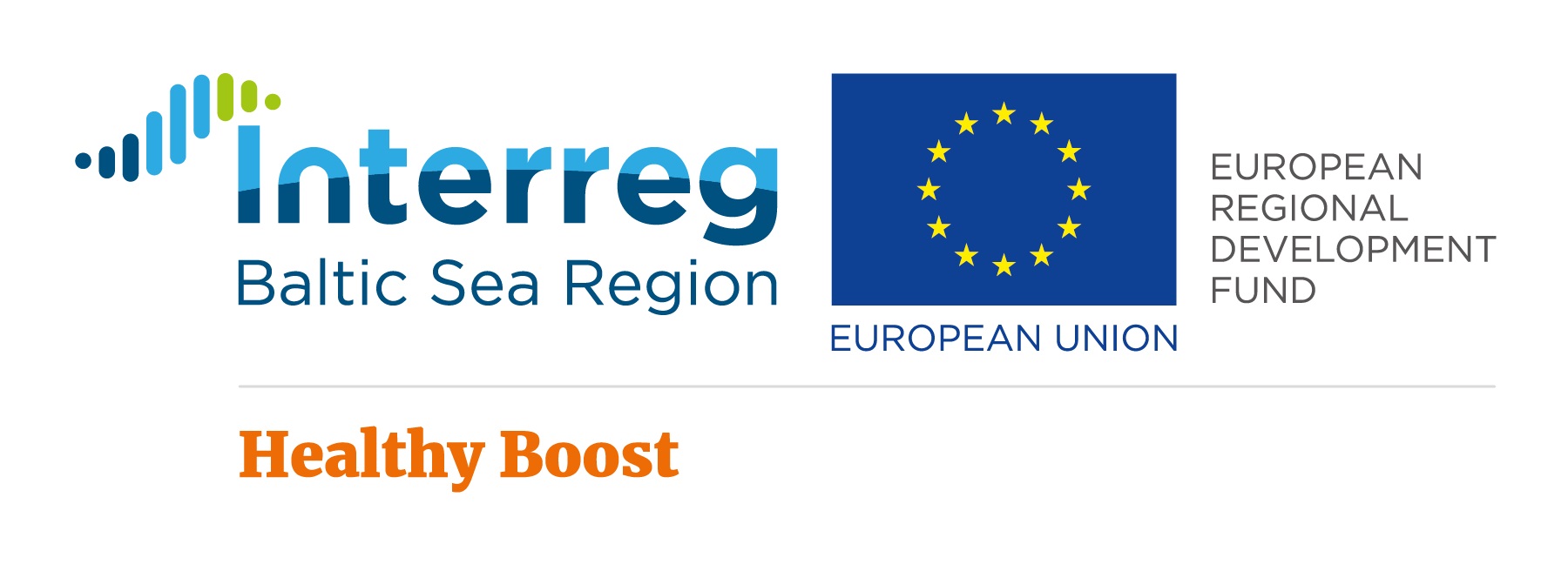Heathy Boost | CIE Toolkit | MHP Hands | PH Work | EWA | We CAN! | MEPMIS | LEECH | ELWHP | WHM-Ageing | Health in the World of Work | Healthy Work in an Ageing Europe | WHP in Europe | Move Europe | WORKHEALTH II | Dragon Fly | The implementation of infrastructures for promoting workplace health | Healthy Workplaces Project | GPOW
Finalization of the evaluation process – „The synthesis of the model evaluation report”
The aim of the Healthy Boost project was to improve the capacities of local authorities to enhance health of citizens through cross-sectoral cooperation. Its main objective was to make urban policies for health and well-being more innovative, effective and integrated.
Achieving such goals required a tool which provided the guidance to partners of cross-sectoral cooperation in order to maximize the effectiveness of collaboration. The Healthy Boost project put together knowledge and experience of experts from various institutions, and as a result, introduced the model of cross-sectoral cooperation.
In order to provide a fully-developed version of the model, the Healthy Boost project based on pilot activities and the process of their evaluation. Nine cities from the Baltic Region were involved in this initiatives: Cherepovets, Helsinki, Jelgava Local Municipality, Klaipeda, Poznan, Pskov, Suwalki, Turku, Tartu. In each of these cities local authorities (municipalities) played a role of the Pilot Coordinators. This role mean that some chosen and trained representatives of the municipality animated the process of cross-sectoral collaboration in their local area, involving citizens as well as partners from NGOs, SMEs and other sectors. All the pilot activities as well as the usage of model were thoroughly evaluated.
Here we would like to present „The synthesis of the model evaluation report”, written by the Nofer Institute of Occupational Medicine. The report summed up observations regarding usability of the model for cross-sectoral cooperation, underlining strengths and weaknesses of this tool and indicates areas for improvement. Results of the evaluation contributed to develop final version of the model.
The basis of information provided in the “Synthesis of model evaluation report” were:
A. The study of Pilot Coordinators responsible for managing the pilots in their cities.
The basis of this study was an online questionnaire called “Evaluation of pilot activities and the model for cross-sectoral cooperation”. This study gathered opinions expressed by the Pilot Coordinators on behalf of themselves and the pilot stakeholders, citizens/pilot target groups. The study was basis of quantitative and qualitative analyses of the (dis)advantageous of the model for cross-sectoral cooperation.
B. The study of stakeholders engaged by the Municipalities in the cross-sectoral collaboration in the pilots.
The basis of this study was “The questionnaire concerning the stakeholders’ opinions on the collaboration in the pilot”. The aim of the tool was to collect pilot stakeholders’ assessment of the opportunities created in the pilots: to meet other stakeholders engaged in the collaboration, to develop ways of collaboration with other partners, to engage in improving the collaboration, and to express the opinion on the cross-sectoral cooperation. Moreover, the questionnaire was aimed at collecting data on the weaknesses and benefits stemming from collaboration, willingness to its continuation in the future as well as changes in motivation to participate in the intervention.
The synthesis of the model evaluation report with appendix
The synthesis of the model evaluation report-graphic version
Urban Labs for Better Health for All in the Baltic Sea Region - boosting cross-sectoral cooperation for health and wellbeing in the cities
The Healthy Boost project aims at improvement of the capacities of local authorities to enhance health and well-being of the residents through cross-sectoral cooperation. The project addresses the transnational challenge of the health burden due to unhealthy lifestyles of the city residents, which cannot be solved by the current fragmented, incoherent urban policies. As they do not take into account the interlinkages of different aspect of city life – social, environmental, commercial and physical, they provide only a partial solution to a complex problem. The lack of capacities of city administrators, combined with limited resources and inadequate base of non-technological innovations (methods of work, ideas, tools and processes) in the public sector constitute the base of the problem.
The main objective of the project is to contribute to the sustainable development of the BSR cities and social wellbeing of city residents of the BSR through improved – more innovative, effective and integrated – crosssectoral urban policies. This will be achieved through:
- enhancing co-creation and enabling citizens participation in planning of the policies for health and wellbeing,
- improving cross-sectoral cooperation in the BSR cities in order to enable city administration to provide integrated policies for better citizens’ health and wellbeing and
- enhancing the innovativeness of the city administration around the BSR to respond better to current and future complex challenges of health and wellbeing in the municipalities.
The main output of the project will be a model for effective cooperation for cross-sectoral urban policies for health and wellbeing, incl. other sectors, citizens and SMEs – developed on the health and wellbeing cases and further generalized to address the other aspects of the urban life. Also, a tool for self-assessment of the needs, values, participatory capabilities, motivation, willingness and best practices of the cities in crosssectoral cooperation for health and wellbeing. At the end Baltic Sea Region policy recommendations will be written on cross-sectoral urban policies for health and wellbeing – lessons learned during the project generalized for the use of other cities in the Baltic Sea Region.
Project manager: Beata Świątkowska, Department of Environmental Epidemiology:
Beata.Swiatkowska@imp.lodz.pl
Team members:
Krzysztof Puchalski, National Center for Workplace Health Promotion
Eliza Goszczyńska, National Center for Workplace Health Promotion
Kamila Knol-Michałowska, National Center for Workplace Health Promotion
Marek Zaremba, Department of Environmental Epidemiology

Any comments on the page?
Fill-in the form

![Cover: Mechanisms of chemical carcinogenesis and their impact on dose-response relationships - the examples of dioxin and benzo[a]pyrene ECNIS 6](http://oldwww.imp.lodz.pl/gal_cache/tnm_3d122379f2b61a3.jpg)








